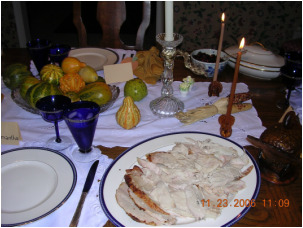
It's not just my friend or the time of year, many of us have a season of grief when the death anniversary and birthday of our loved one comes along. So how do we cope?
I have learned that there is no right or wrong way to work through it. Grief is so personal and it’s influenced by our experience and relationships.
As the years pass, you may handle these periods differently. Sometimes keeping busy, not just with work, but with an active social life can help. A focus on being productive so you don't succumb to sadness may give a sense that at least you are moving forward. Often, just living in the present and keeping an eye on the future helps.
I have my seasons, too. No matter how sad, it is essential for me to acknowledge my loved ones. I think of them on their birthdays, feeling my love for them and the gratitude that they were a part of my life. I light a candle for each of them on the anniversary of their death. The candle burns for twenty-four hours and as I move through my day, I glimpse the flame as I pass and it reminds me how their spirit continues to live on within me.
What I have found empowering is the knowledge that while I can’t change what has happened to me, I can control how I manage the experience. I can avoid it by burying myself or getting out of town. Or, I can acknowledge it and allow myself to recognize the gifts that were mine, no matter how fleeting. All of us have that power.
Robbie Miller Kaplan is an author who writes from a unique perspective as a mother who has lost two children. She has written How to Say It When You Don't Know What to Say, a guide to help readers communicate effectively when those they care about experience loss, available in ebooks for "Illness & Death," "Suicide," "Miscarriage," "Death of a Child," "Death of a Stillborn or Newborn Baby," "Pet Loss," "Caregiver Responsibilities," "Divorce" and "Job Loss." All titles are in Amazon's Kindle Store.




 RSS Feed
RSS Feed
